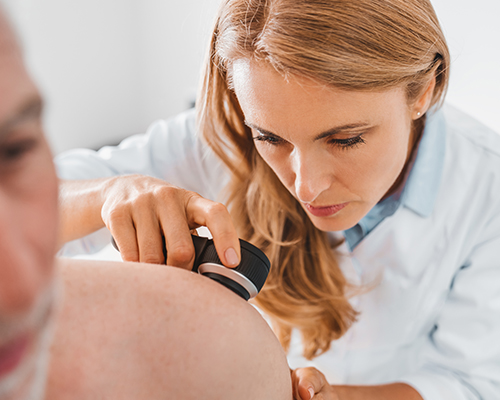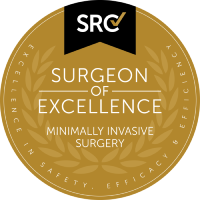Skin Lesions Treatment in Wellington, FL
Skin Lesions
At Advanced Surgical Physicians, Dr. Andrew Shapiro routinely treats many kinds of skin and soft tissue lesions including benign (non-cancerous) conditions, and skin cancers such as: squamous cell carcinoma, Merkel Cell carcinoma, sarcoma, and melanoma.
With extensive training in surgical oncology, Dr. Andrew Shapiro has treated melanoma since 1997. By providing a coordinated, comprehensive team approach to the care of this disease our approach provides patients peace of mind that their cancer navigator can coordinate their medical care—handling everything from booking a surgery to making appointments and following-up with specialists.
Lesions on the skin, lumps, or bumps can be cysts, warts, moles, or skin tags. While most are benign and rarely cause a serious problem, you may wish to have them removed if they become painful, unsightly, or restrict movement.
Types Of Skin Lesions
Soft Tissue Tumors and Skin LesionsBenign skin tumors include many types of moles, seborrheic keratosis, lipomas, skin tags, cysts, and warts. Theses lumps, bumps, and growths often do not cause a serious problem, but if they become painful, unsightly, or restrict movement, you may want to have them removed.
LipomaA Lipoma is a very common benign tumor consisting of fat tissue. They can be found anywhere in the body and can be easily removed, often in an office under local anesthesia.
Mole A common mole is made up of pigment cells, called melanocytes, that grow in clusters. Most moles are benign, but moles that may require medical attention are those that look different than other existing lesions or experience changes in color, height, size, or shape. If you have this type of mole, you should have a physician evaluate it. Also, have moles checked if they bleed, ooze, itch, appear scaly, or become tender or painful.
Skin Cancer The three most common types of skin cancers are basal cell carcinoma, squamous cell carcinoma, and melanoma. A sarcoma is a generalized term for cancers that develop in soft tissues such as fat, muscle, nerves, fibrous tissues, blood vessels, or deep skin tissues.
Basal Cell CarcinomaThis form of skin cancer is the most common. Like most forms of skin cancer, basal cell carcinomas can be found anywhere on the body including areas that have been protected from the sun. They can appear as a shiny pearly nodule, a thickening of the skin/scar tissue, or a red patch similar to eczema. A biopsy of the area in question will determine if it is a basal cell cancer.
Merkel Cell Carcinoma (MCC)Merkel cell carcinoma is a relatively uncommon type of cancer. Usually, these lesions are found on sun-exposed skin, but can be found anywhere on the body including areas that have been sun protected. MCC appears as a firm, painless bump(s) that can vary in color from flesh tone to red/violet. The small bump tends to grow rapidly over several weeks and months. If you notice this kind of skin abnormality on your body, you should seek medical treatment immediately. At Advanced Surgical Physicians, we have the expertise and knowledge to care for MCC.
Squamous Cell Carcinoma Squamous cell carcinomas often appear on sun-exposed areas of the body, but they can also develop in scars, skin ulcers, and genital areas. Squamous cell carcinomas typically start off as small nodules and increase in size over time. These nodules can also turn into ulcers.

What Is Melanoma?
Melanoma is a type of skin cancer that starts in melanocytes, which are found in the skin. Melanoma can develop from a common mole or in an area of apparently normal skin including in the eye, digestive tract, and other areas of the body.
Melanoma is dangerous because it can spread and invade nearby tissues and travel to other parts of the body such as the lung, liver, bone, or brain. The earlier melanoma is detected and removed, the more likely treatment will be successful.
If you have a new, colored area on your skin or notice a change in the shape, color, size, or feel of an existing mole, see a physician. If a skin lesion shows any sign of turning cancerous, such as a change in color, size or shape, you should seek immediate evaluation. At Advanced Surgical Physicians, we will work with your dermatologist and use the most up to date techniques to successfully remove any of the above skin problems.






